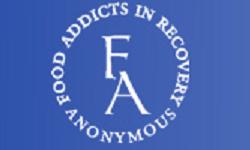12 Step Program For Food Addiction
 While the debates rage on about whether there should be a clinical, “official” diagnosis of food addiction, those who can’t control their eating aren’t waiting. They’ve found other resources, besides surgery and weight-loss clinics. Perhaps it’s summed up best by one statement, “My weight isn’t the problem, that’s a symptom of the real problem, my relationship with food.”
While the debates rage on about whether there should be a clinical, “official” diagnosis of food addiction, those who can’t control their eating aren’t waiting. They’ve found other resources, besides surgery and weight-loss clinics. Perhaps it’s summed up best by one statement, “My weight isn’t the problem, that’s a symptom of the real problem, my relationship with food.”
Like programs in other types of addiction, the 12 step program for food addiction addresses it as a spiritual issue and couples that with practical advice and a sense of group belonging. The actual steps fall into a familiar pattern: Admitting the problem; relying on a higher power for help; a continuing commitment to improve and help others.
Food Addicts Anonymous has meetings in all 50 states where members can come together to share stories and help each other with the addiction. Many find the lack of a “weigh-in” or outright criticism to be a real benefit, and members are anonymous. Although information may be shared between members, there is no pressure to take up any particular diet or exercise plan. The focus is on changing behavior through spiritual means and group interactions.
Some other benefits are the ability to get a mentor, or sponsor, who shares a similar problem. There is also a body of literature explaining food addiction. Because there is no cost to attend, and because food addiction is seen as an ongoing battle, 12 step groups can be very beneficial for the long haul. Food addiction isn’t “cured,” the goal is recovery and maintenance.
Overeaters Anonymous is another, similar group. You can find a quiz on their website to help decide if you may suffer from a food addiction.